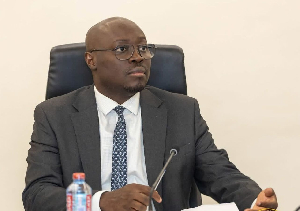Ho, Feb. 19, GNA - The Public Health Sector in the Volta Region last year (2005) posted remarkable successes in dealing with major health problems within its domain.
In terms of human relations however, health workers, especially nurses at the hospitals, were rated by the public as rude, insulting and mean towards the poor and preferential in attending to friends, relations, the well-placed, as well as the highest bidders.
Dr Andrew Arde-Acauah, Volta Regional Director of the Ghana Health Service (GHS) disclosed these facts at an awards night for health personnel in the region to climax its week-long review conference for 2005 under the theme, "Pursuing the Millennium Development Goals". Over 35 personnel rated to have put up exceptional performances in the year under review received, certificates, Televivion sets, fridges and cookers.
According to Dr. Arde-Acquah records showed that in the year under review (2005), the region achieved 82 percent in guinea-worm eradication with the Nkwanta district one of the endemic areas in region being the most successful.
Records indicated that new cases of measles were kept at the minimum due to improved levels of immunization, he said. "BCG immunization improved from 80.4 percent in 2000 to 89.5 percent in 2005".
According to Dr Arde-Acquah, "Penta 3" immunization rose from 70.8 percent in 2004 to 75 percent in 2005, while 2.5 non-polio AFP cases were found per 100,000 of the population as against a target of 2 cases per 100,000.
Tuberculosis (TB) case rate stood at 73.0 percent and maternal deaths reduced from 75 in 2004 to 71 in 2005.
Regarding "Cutaneous Leshimaniasis", Dr Arde-Acquah said the incidence reduced progressively from 6450 rpt 6450 case in 2003 down to 104 cases in 2004 further down to 14 cases in 2005. He said the outlook was also positive for the region towards the successful implementation of the National Health Insurance Scheme (NHIS) and community based health participation initiative known as CHIPS, developed in the Nkwanta district.
So far there 85 out of the planned 105 CHIPS zones are operational and are helping to ease the pressure on health facilities. Dr Arde-Acquah advised Managers of the various health facilities in the region to apply the simple financial planning scheme, which was in practice in the past to help in fashioning action plans to solve problems confronting their facilities. With that approach he said it would be possible to repair some of their dilapidated structures. He underscored the need for cost effective service delivery and the need for the managers to create the necessary atmosphere to motivate their staff to identify and achieve their goals. 19. 02. 06.
Health News of Sunday, 19 February 2006
Source: GNA












